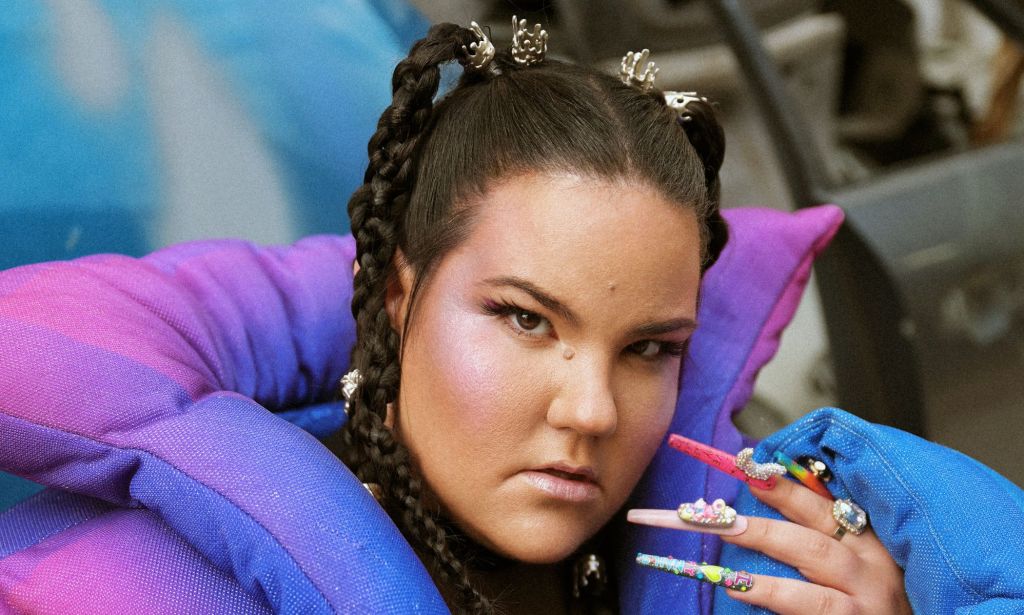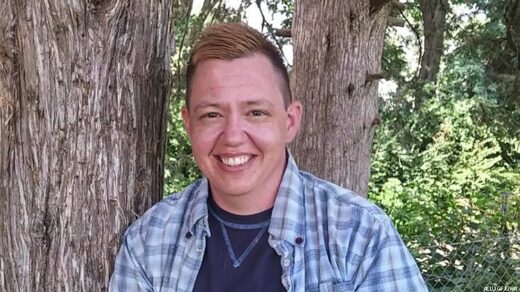Eurovision icon Netta on LGBTQ+ love and skinny-dipping with drag queens
Author: Marcus Wratten
If you were to make a mental list of Eurovision contestants that have instantly clicked with the LGBTQ+ community, Israel’s 2018 winner Netta would certainly sit near the top.
Though the masses seemed to love her Eurovision song “Toy”, considering she won the contest that year, queer people in particular were drawn by her kooky, avant-garde style of pop music and vocal acrobatics. In the five years since winning, she’s headlined Pride festivals, and joined the fight for LGBTQ+ equality.
“I stood in an LGBTQ protest in Israel a few weeks ago,” the 30-year-old musician tells PinkNews, calling from Liverpool via Zoom. “I said I don’t take any letter in the alphabet, and then somebody said, ‘Girl, you are all the letters!’. I was like, yeah, I’m all the letters. This is what I am.”
While Netta’s music has gifted her with a legion of queer fans, she says that she’s had an affinity with the community since she was a child. As a teenager, she would hang out with her gay friends at an LGBTQ+ youth club – until she was kicked out for not being queer. Eurovision simply amplified the connection.
When she won the contest, it changed her life. She applied to represent her home country Israel for two key reasons: the first was that she wanted to be seen. The second was that she couldn’t pay her rent.
“I was in complete shock,” she says of her win. “It was a big circus that happened in my life, and to really comprehend what happened, it took years. It took years to comprehend what I did to millions of people.”
While her own life changed, the lives of the people around her changed, too. Last year, she was contacted by a 20-year-old Chinese fan and make-up artist, who wanted the chance to explain the impact that Netta had had on her.
“I met her for coffee,” Netta says. “She said: ‘Netta, five years ago, I was a 15-year-old boy in China, and somehow, in an illegal way, we got to see your show in Eurovision. I don’t know how, but it changed something in me. I saw you and I felt like, this is what I want to be. I can do this.’
“It made her run away from China and become the beautiful woman that she is. There’s so many stories like that, and I’m just very grateful to be part of something so big.”

There are ample reasons why LGBTQ+ people have fallen head over heels for Netta. Her aesthetic is simultaneously cool and camp. Her music is fun and playful; so fun, in fact, that last year, “Toy” became the first Eurovision song to be used as a lip-sync on a series of RuPaul’s Drag Race.
“Big moment! Looking at RuPaul when he’s like “I’m not your toy!” [with a] frozen face, was for me, everything,” she laughs, adding that she would love to be a guest judge on the show one day.
It’s not too far-fetched a thought, either, considering she’s good friends with a handful of everyone’s favourite drag queens.
“Kim Chi is doing [my song] “I Love My Nails” in her current show. Bob The Drag Queen is one of my good friends. Eureka, we texted yesterday. I asked her about padding; she said ‘I got you covered!’. Detox and I, we had a skinny-dip in Sweden in 2019.”
You don’t get much closer to the queer community than skinny-dipping with a drag queen, yet her connection goes even deeper. Last year, the “Playground Politica” singer explained that she feels like a “straight girl with a very gay story” due to her own experience with bullying.
“I just can’t tolerate that idea of somebody being oppressed, of somebody not being able to be happy. Being in a cage is one of the most horrible things that you can do to someone,” she says, slamming those who are “uncomfortable with change”. With anti-LGBTQ+ legislation spreading like wildfire in the US and globally, it’s a simple yet crucial message.
“I felt that in my life, in a different way obviously, but I felt that in my life so much. I can’t let that happen to other people.”
She’s spoken previously about being made to feel “unworthy of being loved” and struggling with body image. “When I was a young performer, I would take granny dresses and I would shorten them up, because I had no clothes my size,” she reflects now. “I learned how to cut and sew. I was doing beauty and styling and hair for other people but there was never clothes my size.”
However, her experience of overcoming the adversity she faced is yet another reason why she has resonated so deeply with her LGBTQ+ fans.
“When I became more whole and at peace with myself, I started to experiment more with fashion,” she explains. “I love my body. I feel so small sometimes, I feel so skinny.
“The less I care, the more freedom I have, and I’m addicted to freedom. I’m addicted to feeling that I don’t give a f**k.”
The Eurovision 2023 final airs on 13 May.
Actual Story on Pink News
Author: Marcus Wratten




